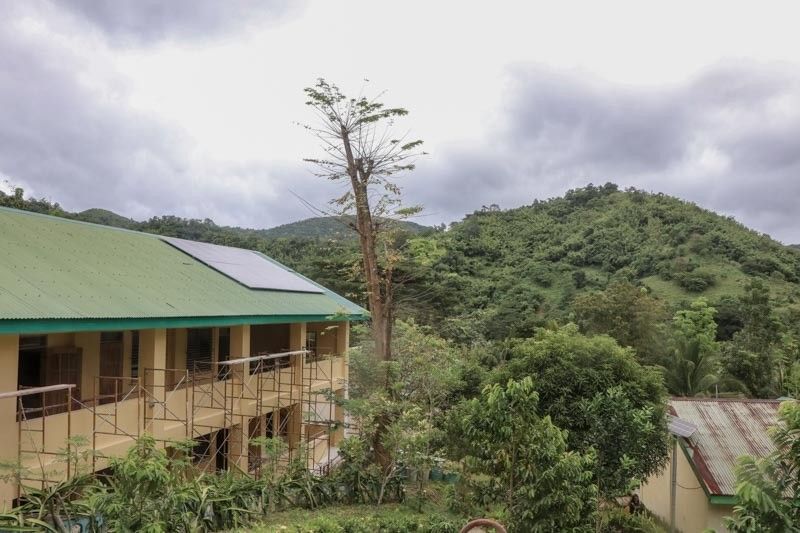IPCC climate reports should spur urgent shift to renewables — groups

MANILA, Philippines — Countries must slash emissions from fossil fuels and make a dramatic shift toward sustainable renewable energy to avert catastrophe, campaigners said Tuesday following a major United Nations report on stemming the climate crisis.
The latest report by the Intergovernmental Panel on Climate Change, a body of climate scientists convened by the UN, stressed that capping warming to just 1.5 degrees Celsius involves "rapid and deep and in most cases immediate greenhouse gas emissions reductions in all sectors."
Any increase above 1.5 degrees Celsius will trigger the worst impacts of climate change, scientists warn.
The third report also offers solutions to mitigate climate change, with IPCC chair Lee Hoesung saying the world needs to act as "we have the tools and know-how required to limit warming and secure a liveable future."
Climate campaigners said the IPCC report should prompt the Philippine government to harness the full potential of cheap and renewable energy.
"The latest IPCC report affirms that there is no future with fossil fuels and that we need to shift to renewable energy fast," Greenpeace Philippines campaigner Khevin Yu said.
'Win-win situation'
In 2020, the Duterte administration said it will no longer accept proposals to build new coal-powered generators. The coal moratorium was announced in tandem with the relaxation of foreign ownership limits in geothermal energy projects worth $50 million or more.
Experts, however, expect the country to continue its dependence on coal in the next years.
Greenpeace Philippines called on the government to phase out coal, stop fossil gas expansion, and target 50% of renewable energy in the energy mix by 2030. Renewables made up only 29% of the mix. The country’s goal is to increase renewable energy to 35% by 2030 and 50% by 2040.
"Shifting to renewable energy is a win-win situation for the Philippines as we will finally be free from costly fossil fuel power plants. It has been shown that renewable energy is cheaper in the long-run, especially for resource-rich countries like the Philippines," Oxfam Pilipinas country director Lot Felizco said.
"We will also be able to do our part to address climate change as it becomes more urgent to reduce the global levels of climate emissions," she added.
Most of the presidential candidates in the May polls said they support the shift to renewable energy systems, but details on how they plan the transition to clean energy are scant. Some aspirants also expressed openness to the pursuit of nuclear energy and liquefied natural gas, which groups said will harm host communities and the country’s energy security ambitions.
Challenge to act
The latest IPCC report also reinforces the challenge to the country’s next leaders to reframe climate resilience as economic resilience, the Institute for Climate and Sustainable Cities pointed out.
"To act on the climate crisis is also to act on food, water, and energy security," ICSC associate for policy advocacy Denise Fontanilla said, adding that adaptation must remain the country’s climate response anchor.
"Addressing the demand for reliable, secure and affordable power, or efficient and safe urban mobility, or coastal risk reduction and food security will do far more for global efforts than diffuse measures to reduce emission," she said.
Despite the magnitude of the crisis, conversations on climate change have been largely absent from the election campaign.
"Every year we wait for genuine climate action is another year of lost homes, livelihoods, and loved ones for our fellow Filipinos," said Marinel Ubaldo, a survivor of Super Typhoon Yolanda (Haiyan).
Groups also called on the nation’s next leaders to demand that developed nations quickly cut their fossil fuel use and scale up their commitments to deploy finance and technology to climate-vulnerable communities.
- Latest





























